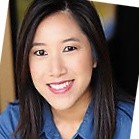

It took a personal invitation from a colleague to bring Sarvitree Sukaromya, OD, of Kansas City, Missouri, to a town hall for the Missouri Optometric Association (MOA). As she listened to what the association was planning, she had a moment of recognition that she needed to be involved. That feeling coincided with her desire to do more than patient care – which is still important to her in her corporate-affiliated practice. But she was looking for an opportunity to give back.
“I emailed LeeAnn Barrett, OD, MOA executive director, to see how I could put my skills to work to help the organization,” she says. Dr. Barrett told her the board was considering a part-time communications coordinator position that Dr. Sukaromya would align with perfectly. One of the main elements of that role is to help maintain membership and make sure that doctors have a feeling of belonging, knowing that their voices are being heard.
Dr. Sukaromya has been in the role a little over a month now, so she is still learning what resources are available to doctors and members, but she’s already realizing she should have made the jump into supporting organized optometry sooner. “We have broad scope with oral and therapeutics and comprehensive exams for kindergarteners, but we still need to fight to retain what we have and possibly expand.”
MAKE IT A PRIORITY
She hears from ODs who haven’t yet joined their professional organizations, and the reasons sound familiar. “I know why I didn’t join earlier. I had a young child, I was establishing myself in the community and I was busy,” she says. Furthermore, as a corporate-affiliated OD, she wasn’t entirely sure that organized optometry had a place for her.
Now, she knows differently and can address it. She attended the American Optometric Association (AOA) Leadership Institute 2.0 recently and sat at a table with doctors from academia, private practice, corporate practice and consulting. “The idea really was to bring everyone together. No matter what our mode of practice, we have valid experiences and thoughts we can share.”
In her own practice setting, she refers to colleagues who have the equipment and technology to treat or monitor patients whom she cannot monitor adequately. “Even so, I want to enable every OD to practice to the full scope of their license if they want to do so. I’m rooting for my colleagues in rural communities because their patients do not have a specialist nearby. I’m rooting for my colleagues down the street who can monitor my patients, if I cannot,” she says.
SIGHT SET ON OD CAREER
When she was young, Dr. Sukaromya volunteered at the local hospital where her mother worked at as a nurse. “I always knew I wanted to be in a profession to help people. Being a first generation Asian-American, my parents wanted my siblings and me to aspire to become doctors and lawyers,” she says.
Her parents influenced her and their stories motivated her. “They ate rice and salty fish with their bare hands and came to America with $200 in their pocket for better opportunities. I learned to appreciate their efforts to provide for the family,” she says. After she graduated from college, she worked at an optical retail location and realized that optometry would be a great career. “As an optician, I dispensed eyeglasses to customers, and they would have this elated expression on their faces when they put on their glasses for the first time. It was contagious. I wanted to be a part of making that happen,” she says.
She shadowed an OD, went to optometry school, worked as an associate in a private practice but ultimately chose a corporate-affiliated location because it allowed her to be more involved with her patients.
DON’T TAKE SCOPE FOR GRANTED
Even so, she wasn’t sure where joining the AOA or MOA fit into her priority list. “Reflecting back, I should have put more emphasis on being a member of my state association and the AOA. With optometry being a very heavily legislative profession, at any moment, the scope I am accustomed to practicing can be challenged by the opposition. I took for granted what the previous doctors of optometry fought so hard to have passed in legislation. To be able to use therapeutics drops, diagnostic drops, prescribe topical and oral medications, to ensure that every child enrolling in kindergarten or first grade is required to be seen for a comprehensive eye examination are wins for optometry. By supporting the AOA and state associations, members are doing everything we can to advance our profession on behalf of our patients and communities.”
Read other WO stories on the importance of advocacy:
So Much of an OD’s Role Encompasses Advocacy
Three Female Doctors Say Diversity in Leadership and Advocacy Will Strengthen the Profession



